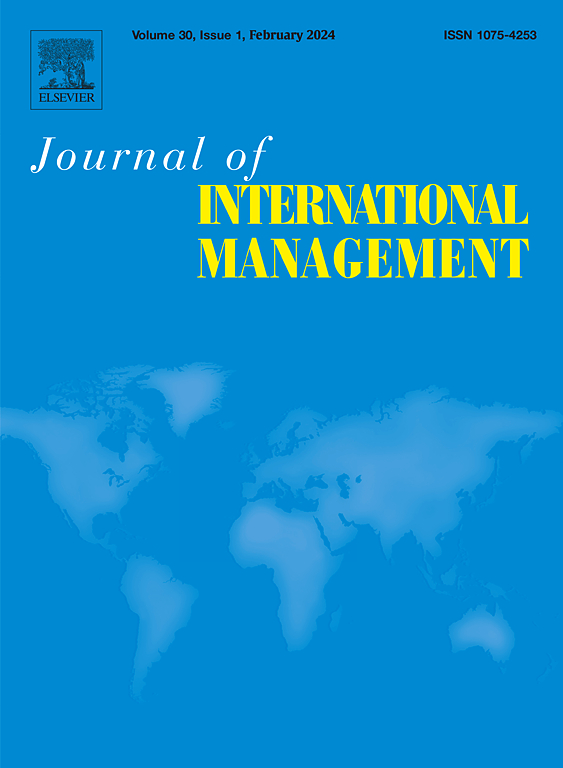Can conflict be a desirable step in trust-building within international strategic alliances? A systematic literature review and typology
IF 4.9
2区 管理学
Q1 MANAGEMENT
引用次数: 0
Abstract
In the context of international alliance formation and stability, conflicts are traditionally represented as impediments, to be avoided or at least minimised. Motivated by earlier research and Positive Organisational Scholarship, we problematise the literature on conflicts and challenge such assumptions, coming up with a new research question: ‘How might conflicts be managed to build trust between international partners and ultimately support international strategic alliance formation and stability?’ We create a typology linking constructive conflict management procedures and trust. A better understanding of calculative trust, cognitive trust, and the progression from calculative to cognitive trust can facilitate the achievement of this goal. Well-managed conflicts can enhance trust-building between partners (prospective or current), supporting over time alliance formation and stability. Conflict can be changed from accustomed negative perceptions to a force for good, following a problematisation approach. In our typology, we explore the link of each procedure with calculative trust, cognitive trust, and the transition between calculative and cognitive trust. We create three meta-categories for these nine procedures and select examples from the literature that are connected to four established theoretical frameworks in the international strategic alliances area, i.e. transaction cost, institutional perspective, resource-based view, and organisational learning.
在国际战略联盟内部建立信任的过程中,冲突能成为一个理想的步骤吗?系统的文献综述和类型学
在国际联盟形成和稳定的背景下,冲突传统上被视为障碍,需要避免或至少最小化。在早期研究和积极组织学术的激励下,我们对有关冲突的文献提出了质疑,并对这些假设提出了挑战,提出了一个新的研究问题:“如何管理冲突,在国际合作伙伴之间建立信任,并最终支持国际战略联盟的形成和稳定?”“我们创建了一种类型,将建设性的冲突管理程序和信任联系起来。更好地理解计算信任、认知信任以及从计算信任到认知信任的进展可以促进这一目标的实现。管理得当的冲突可以增强伙伴(未来的或现在的)之间的信任,随着时间的推移支持联盟的形成和稳定。按照问题化的方法,冲突可以从习惯的消极看法转变为一种积极的力量。在我们的类型学中,我们探讨了每个过程与计算信任、认知信任的联系,以及计算信任和认知信任之间的过渡。我们为这九个过程创建了三个元类别,并从文献中选择了与国际战略联盟领域四个已建立的理论框架相关的例子,即交易成本、制度视角、资源基础视角和组织学习。
本文章由计算机程序翻译,如有差异,请以英文原文为准。
求助全文
约1分钟内获得全文
求助全文
来源期刊

Journal of International Management
MANAGEMENT-
自引率
9.80%
发文量
67
审稿时长
81 days
期刊介绍:
The Journal of International Management is devoted to advancing an understanding of issues in the management of global enterprises, global management theory, and practice; and providing theoretical and managerial implications useful for the further development of research. It is designed to serve an audience of academic researchers and educators, as well as business professionals, by publishing both theoretical and empirical research relating to international management and strategy issues. JIM publishes theoretical and empirical research addressing international business strategy, comparative and cross-cultural management, risk management, organizational behavior, and human resource management, among others.
 求助内容:
求助内容: 应助结果提醒方式:
应助结果提醒方式:


